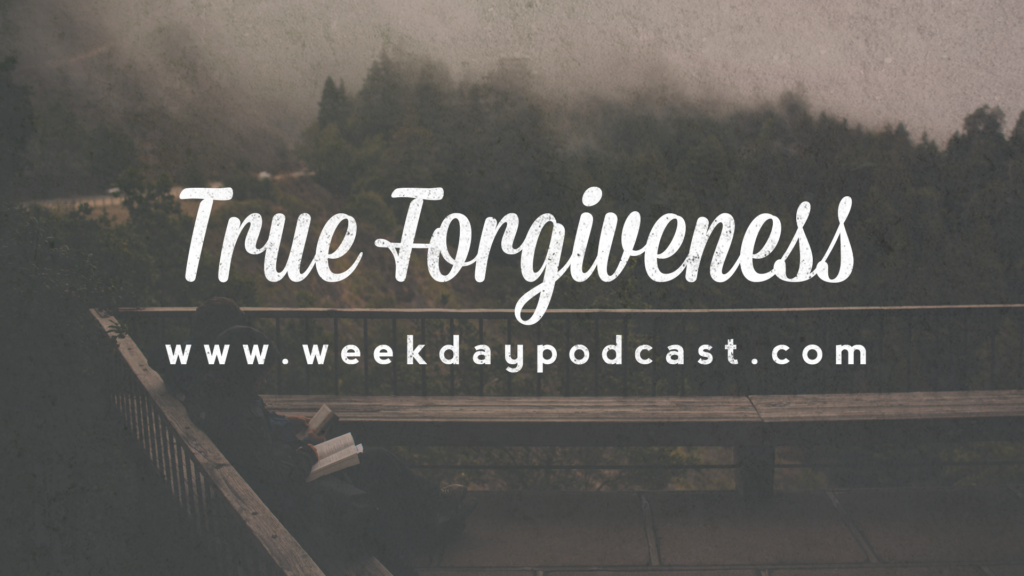Forgiveness is a concept that transcends mere absolution; it is a profound act of liberation that resonates deeply within the human spirit. In the Bahá’í Faith, true forgiveness is not simply an emotional response but a conscious choice reflecting the essence of divine love and unity. To understand the Bahá’í perspective on this intricate subject, one must delve into various dimensions of forgiveness, exploring its theological underpinnings, psychological ramifications, and transformative power within interpersonal relationships.
At its core, true forgiveness is akin to a blossoming flower that emerges from the fertile soil of love and compassion. The Bahá’í teachings emphasize that humanity is interconnected—each individual a petal on the same expansive blossom. Recognizing this interconnectedness lays the foundation for the act of forgiveness. When one forgives, they engage in a deliberate act of empathy, seeking to understand the motivations and struggles of the offending party. This stance mirrors the Bahá’í principle of seeing the world through the eyes of another, fostering a nurturing environment where grievances can be released and understanding can flourish.
The first pivotal element in grasping true forgiveness within the Bahá’í framework is the notion of divine forgiveness. Bahá’í scripture indicates that God embodies infinite mercy and love, always ready to bestow forgiveness upon humanity. This divine attribute serves as a model for believers. In striving to emulate this attribute, individuals are encouraged to push aside feelings of resentment and vengeance, thus mirroring the very essence of God’s boundless clemency. Consider the parable of the sun and the shadow: just as the sun’s warmth dispels darkness, the light of forgiveness can dissolve the shadows of anger and regret.
Psychologically, forgiveness catalyzes a process of healing and liberation. The act of holding onto grievances is reminiscent of chains binding one to the past. Bahá’í teachings emphasize the detrimental impacts of harboring feelings of grudges and hostility; these sentiments do not only impede personal development but also obstruct the progress of humanity as a whole. When individuals engage in true forgiveness, they free themselves from the fetters of negativity, which allows them to embark on a journey of spiritual and psychological renewal. Thus, forgiveness emerges as a gift that one gives to oneself, liberating the heart and mind from the shackles of past injuries.
Moreover, true forgiveness is not a singular act but an ongoing process, akin to tending to a garden that requires consistent nurturing. The Bahá’í perspective encourages individuals to cultivate a mindset that regularly practices compassion and understanding. Forgiveness requires effort; it necessitates introspection and an honest acknowledgment of one’s feelings and reactions. By reframing the narrative around grievances, one can transform the experience from one of pain to one imbued with lessons and growth. In this light, forgiveness becomes a dynamic interplay between the heart and intellect, embodying both emotional and rational dimensions.
Another facet of true forgiveness within the Bahá’í context is reconciliation. The teachings advocate that forgiveness should not only serve to absolve but should also pave the way toward rebuilding relationships—much like reconstructing a bridge that has been damaged. This process involves dialogue, understanding, and a commitment to mutual respect and dignity. Reconciliation facilitates the restoration of trust and harmony within a community, thus embodying the Bahá’í principle of unity in diversity. In a world often fragmented by conflict, the act of reconciling is essential for the propagation of peace and the realization of a collective humanity.
Furthermore, the Bahá’í approach to forgiveness entails a recognition of the complexity of human nature. Individuals are inherently flawed, and understanding this fallibility fosters a greater capacity for forgiveness. This acknowledgment is not an excuse for wrongdoing; rather, it underscores the Bahá’í teaching that every person is on a continuous journey of spiritual development. Just as a sculptor chisels away at a block of marble, revealing the masterpiece within, similarly, individuals evolve through their experiences, including mistakes. True forgiveness invites one to see beyond the transgressions, recognizing the potential for growth and change.
Ultimately, the essence of true forgiveness transcends personal relationships; it radiates outward, manifesting in social and global contexts. The Bahá’í Faith promotes an altruistic approach to forgiveness that encourages individuals to forgive not just for personal gain but to foster collective wellbeing. The teachings advocate for a holistic vision of humanity, calling upon believers to engage in acts that promote healing and understanding on a grander scale. Recognizing the shared struggles of all people engenders a sense of collective responsibility, urging individuals to operate within a paradigm of grace and kindness.
In conclusion, true forgiveness, as elucidated by the Bahá’í teachings, encapsulates a multifaceted journey that intertwines divine love, personal liberation, and social harmony. It is a deliberate act, a transformative process, and a communal imperative. Embracing forgiveness allows individuals to transcend the bitterness of past wrongs and cultivate a future grounded in compassion, unity, and peace. As the tendrils of forgiveness spread, they nourish the roots of understanding, fostering an environment where humanity can flourish together. In the grand tapestry of existence, true forgiveness is a thread that binds, heals, and uplifts, creating a more harmonious world for all.
